Paid signature collections spark concerns about Swiss democracy
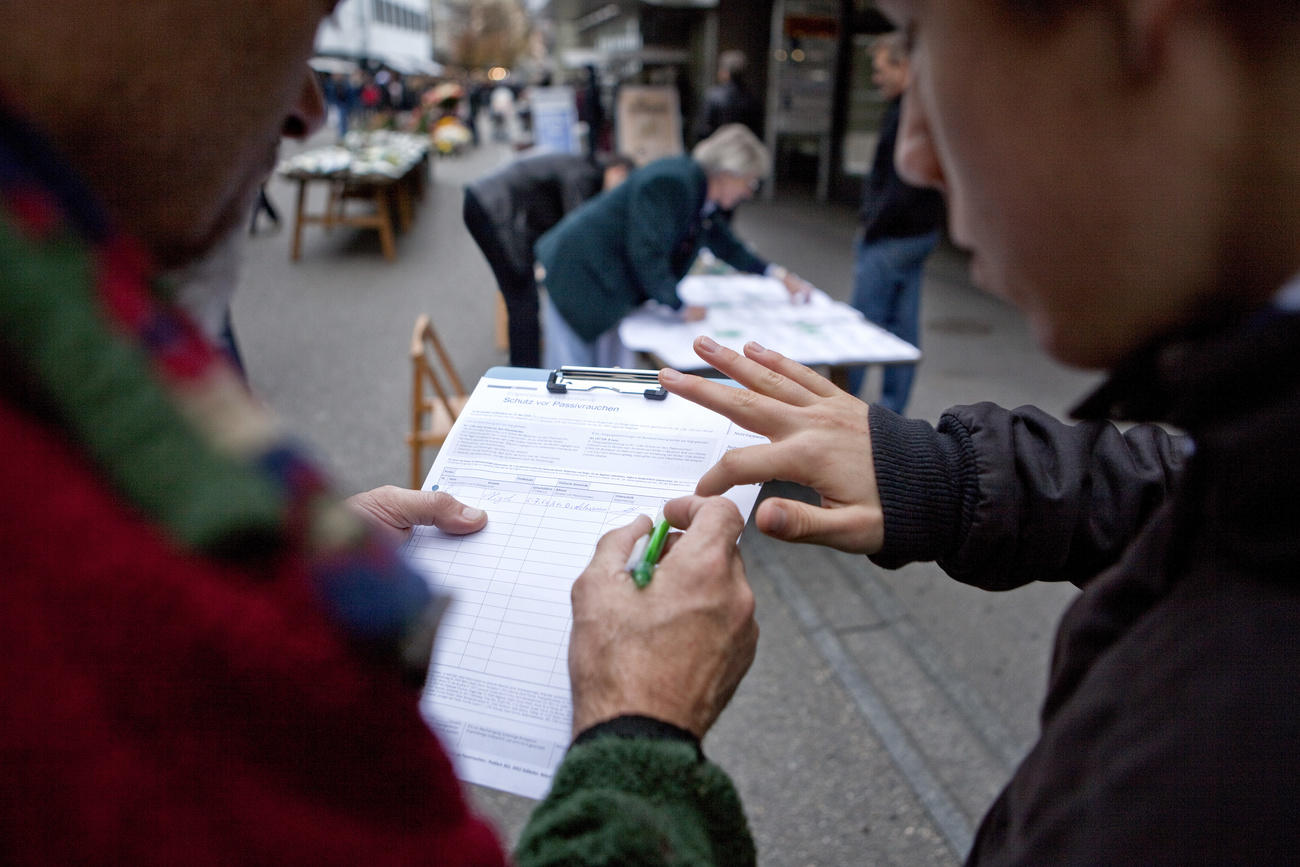
Reports about deceitful practices by paid collectors of citizen signatures for political proposals have prompted renewed moves in parliament to crack down on the commercial methods.
“It’s a job I’ve had for a few months now. I need to make a few quid because my parents only give me CHF1,200 a month. I was sacked by KFC because I was caught spitting into the deep fryer,” says Harris, a sleazy looking student with strands of hair covering half his face.
What reads like an outrageous statement by a young signature collector in Switzerland is in fact part of a satirical sketchExternal link by the two popular comedians Vincent Veillon and Vincent Kucholl on the French-language RTS public radio.
The two-minute interview between a fictitious TV journalist with the equally fictitious Harris and his pitch-black wig adds a humorous note to a scandal that has twice made the headlines over the past year.
And now, the allegations that hired signature collectors use dishonest tactics or don’t know the details of the proposals they’re pitching has reached the political stage.
Left-wing politicians have launched two separate proposals, currently pending in parliament, which they say aim to avert a threat Switzerland’s system of direct democracy – which includes regular nationwide votes, triggered by gathering signatures from citizens.
Confrontation
Social Democrat parliamentarian Mathias Reynard has called for an outright ban on collecting signatures by paid agents.
“We have to tackle the problem at its roots,” he says. Reynard believes that many collectors live from such casual work, getting paid per signature gathered and coming under huge pressure from their employer.
Trying to take advantage of citizens’ trust, these people are urged to bring back as many signatures as possible and at any price, even using lies, he explains.
“This method of compensating for the lack of commitment undermines the trust of citizens in the direct democracy system,” Reynard says.
.Voilà les méthodes utilisées. Dans de nombreuses villes suisses. Quand on n’a pas d’arguments, on utilise le mensonge pour duper les citoyens. Faire signer un texte homophobe en prétendant lutter contre l’homophobie. Quelle honte et quel tort pour la démocratie directe! pic.twitter.com/emO6iK9iKnExternal link
— Mathias Reynard (@MathiasReynard) March 29, 2019External link
The politician from Valais initially discovered the devious practices when he confronted some signature collectors who were trying to make citizens support a proposal to bring down a law boosting anti-homophobia protection. The collectors were telling people that the referendum wanted to fight against homophobia – the exact opposite.
The discovery had a personal note as Reynard had been the sponsor of the anti-homophobia legal reform in the first place. It was eventually approved in a nationwide vote earlier this year – defeating the ultra-conservative campaigners.
Manipulation
Other cases of allegedly fraudulent street campaigns also came to light in the French-speaking part of Switzerland in the context of a proposal to introduce a statutory two-week paternity leave.
Again, signature collectors have been accused of misleading or manipulating citizens with false information.
The company, Incop SuisseExternal link, which has had mandates from several political parties and campaigns in the past, has denied any wrongdoing. Its director rejected any responsibility, blaming individual employees.
He announced that the Lausanne-based company would continue to provide collectors, but that they would be trained and instructed by the political parties and vote committees.
Legal basis
A second motion pending in parliament aims to create the legal basis to sue those responsible for fraudulent practices and to declare signatures collected in such a manner as invalid.
The sponsor of this proposal, Social Democrat Baptiste Hurni, warns that misleading citizens to support calls for a public vote is tantamount to undermining the direct democracy system. He said any violation should be sanctioned like other types of fraud.
“Direct democracy is one of the most treasured values in Switzerland and we have to protect it using all means available,” Hurni told RTS.
Currently, only the practice of falsifying signatures is a punishable offence, according to a 1986 verdict by the supreme court.
Recurring issue
What are the chances that the two motions will be passed, forcing the government to prepare a draft reform?
Parliament will discuss the two proposals at a later stage. But modern Swiss history shows that previous attempts to restrict the signature collection process never went very far. A controversy was already brewing back in the 1930s, for example, when unemployed people were apparently hired to collect signatures, according to the Neue Zürcher Zeitung.

A proposal in the 1990s sought to limit collectors to town halls rather than public spaces in general, but it was thrown out by the House of Representatives at an early stage.
In 2004, the Swiss government came out against an outright ban.
“Such a ban could particularly hit committees which have few funds […] and it raises delicate issues of delineation, notably relations between political parties, trade unions and business organisations,” a statement said.
Its position hasn’t fundamentally changed: it’s up to citizens to be aware of what request they are asked to sign, and criminal law is not the right way to protect direct democracy.
“It is also the responsibility of citizens to inform themselves about the request. The government believes it is not justified to give a legal dimension to a political debate,” it said in a response to Hurni’s motion last month.
Opponents argue that restrictions on the collecting of signatures goes against basic rights enshrined in the Swiss constitution. They add that this stage of political participation is not to be confused with an actual campaign ahead of a vote – which usually comes about four years later.
Swiss cantons also have the power to impose such bans at the regional level, but thus far only Geneva has done so.
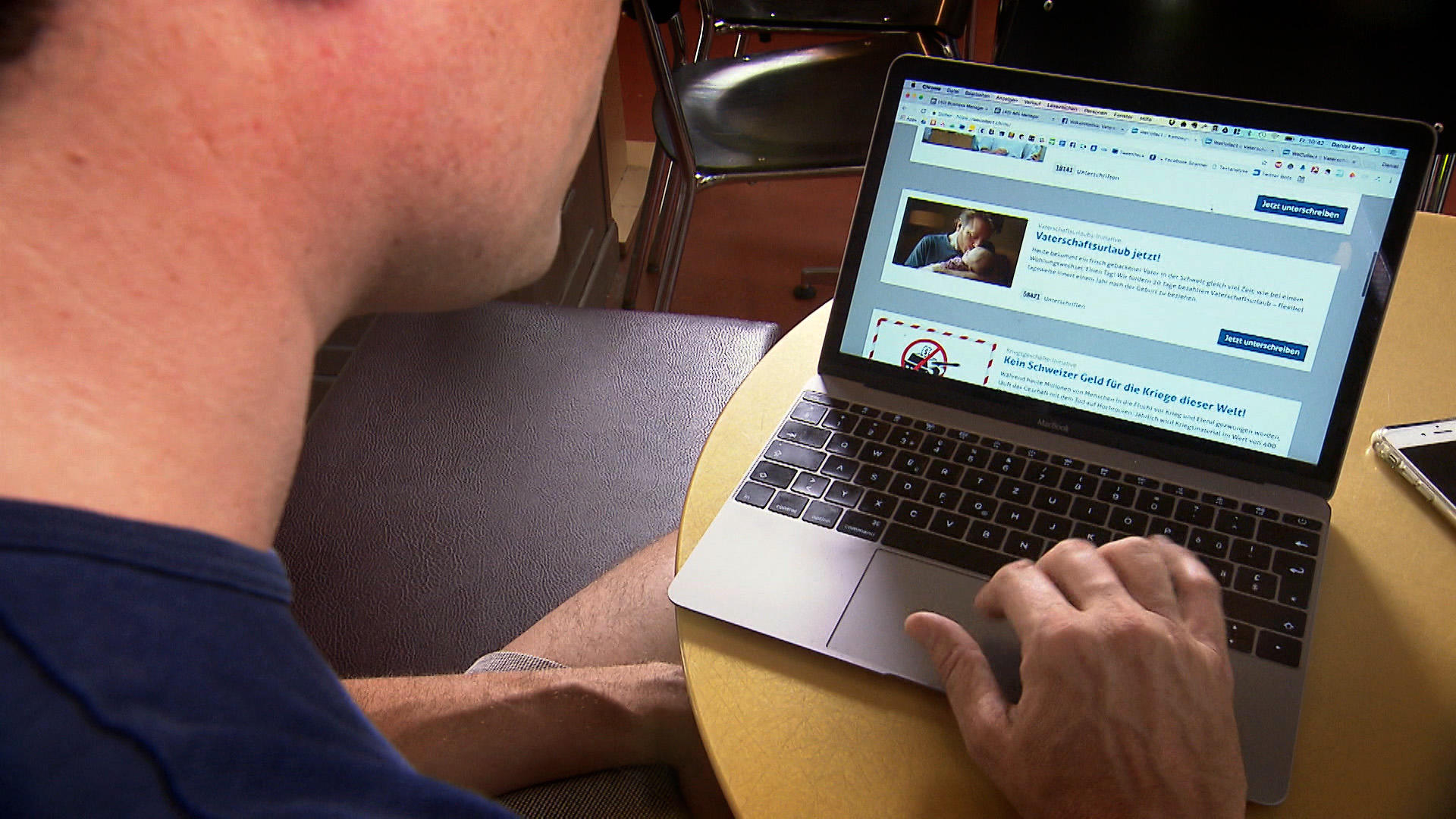
More
Swiss signature-gathering platform marks debut year

In compliance with the JTI standards
More: SWI swissinfo.ch certified by the Journalism Trust Initiative
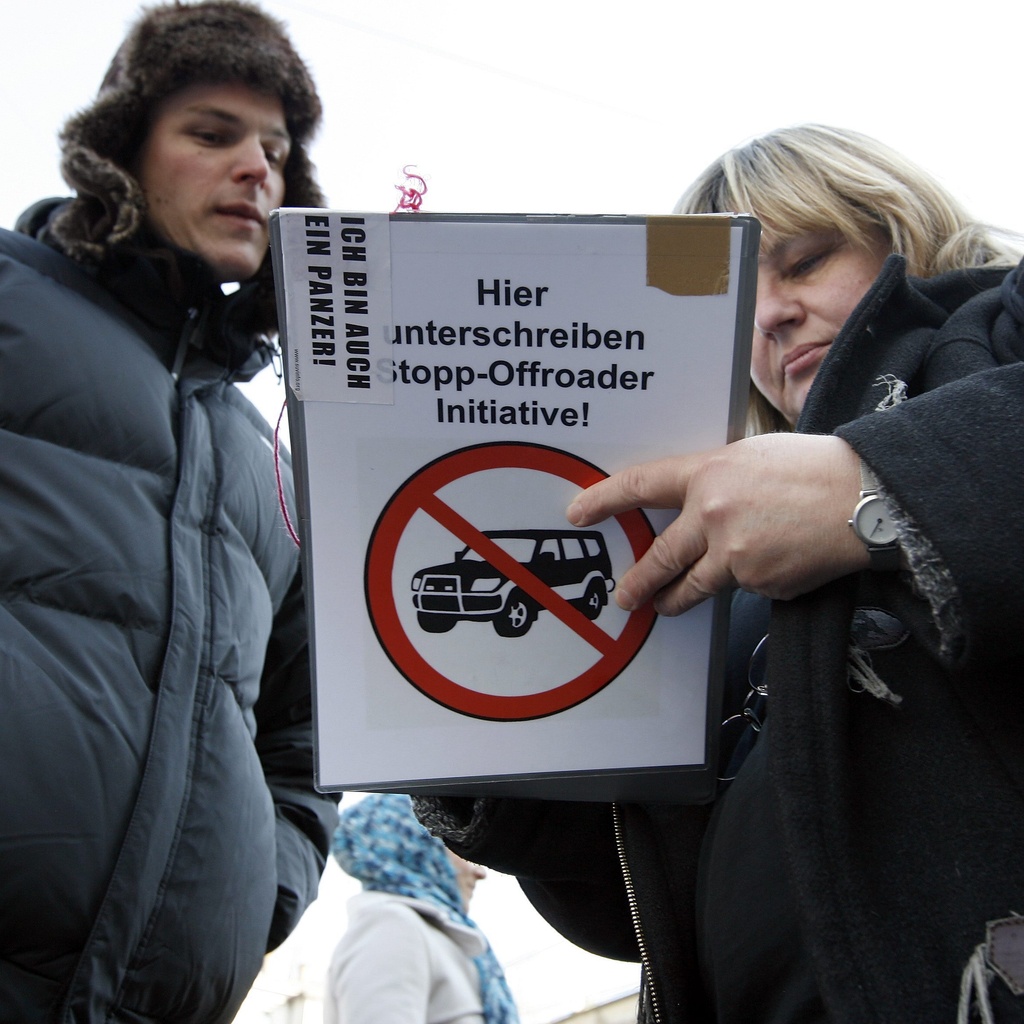
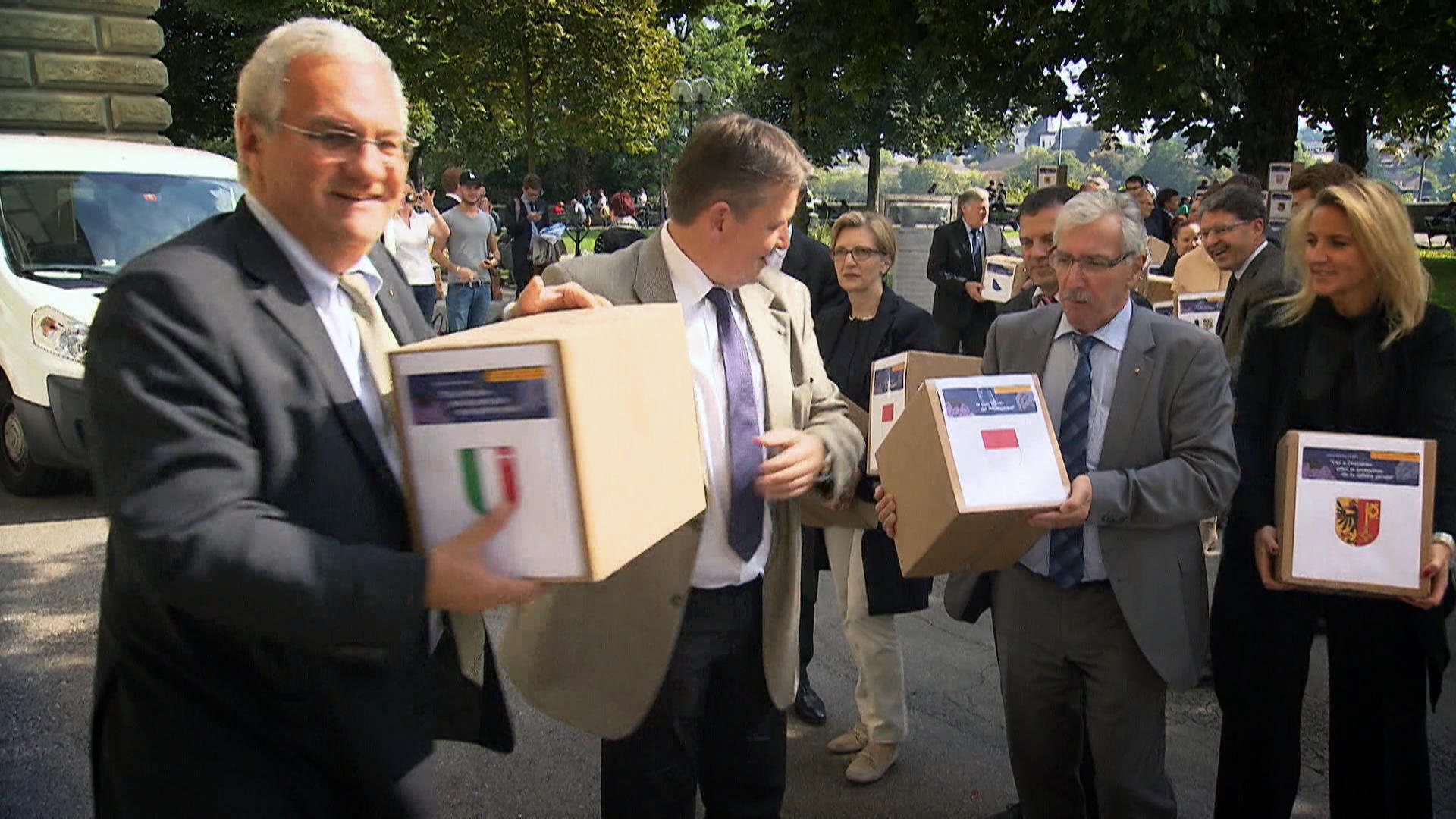


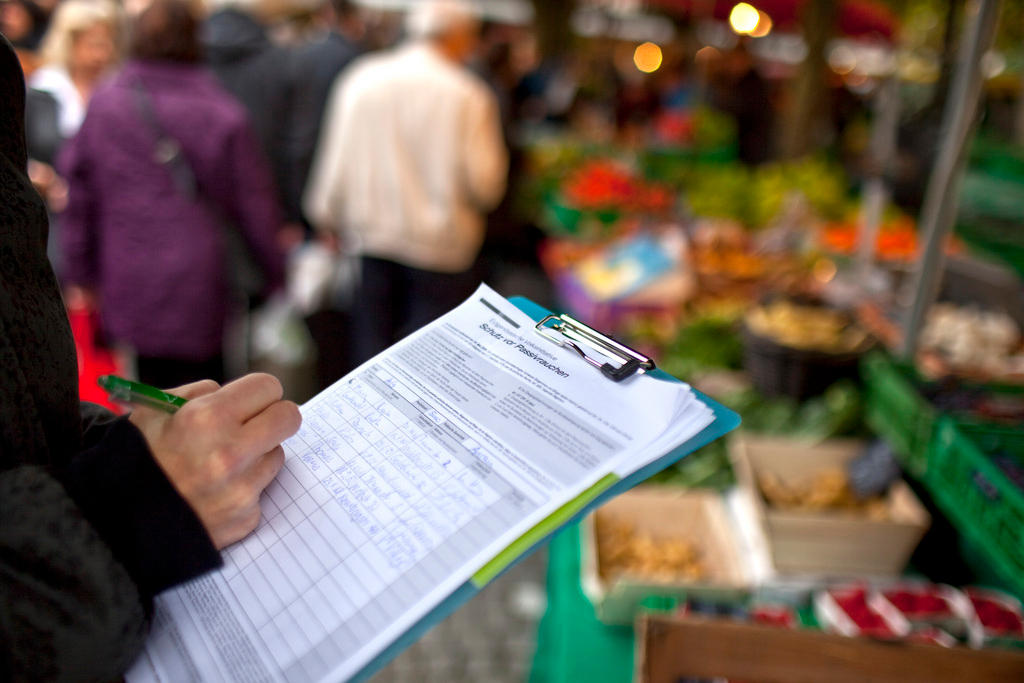

You can find an overview of ongoing debates with our journalists here. Please join us!
If you want to start a conversation about a topic raised in this article or want to report factual errors, email us at english@swissinfo.ch.